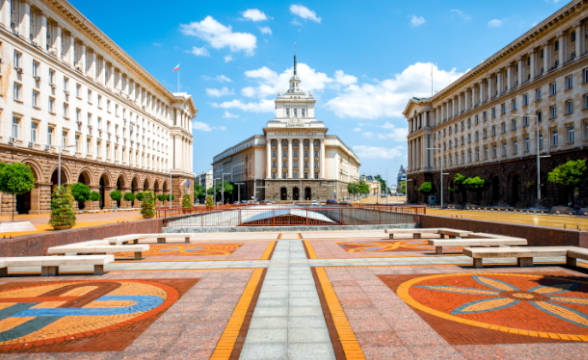The lottery in Bulgaria is exclusively in the hands of the Bulgarian Sports Totalizator, which emphasizes the importance of potential regulatory changes, as they are more often than not, politically motivated.
Proposed Bill Would Allow Doubling Venues
There are already some regulatory changes to Bulgarian Sports Totalizator’s (BST) activities that are expected to go into effect, starting in August. BST is Bulgaria’s state-owned “Toto” (Lotto-equivalent) provider, and additionally provides more sports games – both online, as well as in situ. The change concerns BST’s venues and would require that all BST games be provided only within its own network. This would see the approximately 1,500 gaming operation sites cut down to around 600, which in turn would most probably negatively affect revenue.
Bulgaria’s ITN political party made a counter proposal in its latest bill proposition. ITN’s Lyubomir Karimanski, Iva Miteva, and Andrey Mihaylov are calling for opening new gaming points of sales, up to a maximum of 3,000 throughout the country. The proposed bill describes two main types of wagers: random event betting and games requiring fact knowledge.
According to the bill, there should be a more discernable distinguishment between bingo, casino or slot machine games versus other forms of gambling. The new gambling venues must be clearly designated and marked as gambling venues for a certain game. It’s proposed that all the new venues be established on premises owned or rented directly by BST and should offer self-service devices. The party’s forecasts don’t see the proposed changes posing any additional administrative burden or expenses to BST, making it an easier sell come voting time.
Deyan Petkov independently made a proposition to increase the number of gaming venues for the government-owned BST as well, asking for one venue per 1,725 people. Presumably, this is 1,725 people who are allowed to gamble, but it’s unclear if that’s the intended characterization precisely.
Tough Politically Charged Climate
Since Bulgaria’s political climate is rather unsteady at the moment, almost all parties are in a frenzy to propose as many bills as possible. There won’t be enough time to look at all of them, let alone vote them through, so it’s still unclear what the practical ramifications for Bulgaria’s BST could be.
At any rate, all income from BST’s gaming activity is used to cover operational expenses and further fund physical education, local sports and culture events, as well as the creation and maintenance of sports facilities throughout public and municipal schools.
The recently appointed BST director – Alexander Todorov – was selected by Radostin Vasilev, who himself was the minister of sports up until recently, and originally came from ITN as well. Controlling BST often makes the person at the highest position intricately linked to the state of all relative governmental bodies and their actions. This might prove beneficial for the parties, backing the directors of BST throughout the years, as public perception easily shifts that way when results are visible.
BST was handed a total lottery monopoly back in 2020, after a bill amending the 2012 Gambling Act was passed into law on February 7, making all previously private operators obsolete. This further propelled a movement to try and regulate the state-owned company more tightly and directors have historically usually been very politically exposed.


